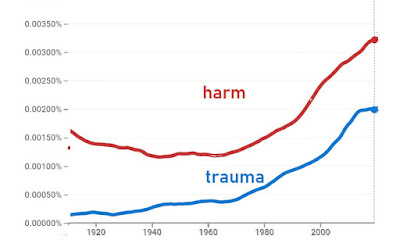April 2, 2021
Posted by Jay Livingston
Was it just a coincidence that this week both The New Yorker and This American Life included pieces on the same case of alleged sexual child abuse ? Neither mentioned the recent HBO documentary series Allen v. Farrow, but the cases are similar. A parent in a custody battle is accused of inserting a finger into the vagina of a six or seven-year old girl. The accused parent suggests that the other parent has coached the child and implanted a false memory.
The point of the less famous case — it involves a woman named Nicole Kleumper — is that memory is fallible. Most of us don’t like to admit that. We think that if we remember something, then it must have happened. Oh, we might forget unimportant details, but the details that do stand out in our memory are facts.
But that’s not how memory works. Psychologist Elizabeth Loftus has devoted a lifetime of research to revealing the unreliability and malleability of memory, especially when it involves eyewitness testimony in criminal cases. She was especially skeptical of “recovered memories” — memories of traumatic events that do not come to mind until long after the fact.
In 1997, psychologist David Corwin, published a paper documenting what seemed like a clear case of recovered memory. In a custody battle, the father of six-year old Nicole claimed that the mother had sexually abused her. There were videotapes of a psychologist interviewing Nicole. The father won custody, and the girl did not see her mother again. But ten years later, in speaking with Corwin, Nicole could not remember why she had become estranged from her mother. After her father died, she reunited with her mother and wondered if her father had gotten her to lie, for she had no memory of the alleged abuse.
But Corwin showed her the videotape — six-year old Nicole saying that her mother was “rotten” and had put a finger in her vagina. For Nicole at age 17, the video triggered a sort of memory. “I remember it happening, that she hurt me. I was getting a bath, and I don’t remember anything specific until I felt that pain.
Here, Corwin claimed, was a clear case of a memory that had been repressed and then recovered. Elizabeth Loftus was skeptical and set about debunking this case. She was dogged about it. Corwin had thrown a cloak of anonymity over Nicole, but Loftus sniffed out clues, eventually tracked down Nicole’s identity,and then set about casting doubt on the recovered memory. (Nicole once referred to herself as “a survivor of Elizabeth Loftus.”)
What’s amazing and admirable about Nicole Keumper is that over time she took Loftus’s ideas seriously and in the end came to question her own memory. What had been the firm footing of memory was now soft. And she has come to accept this uncertainty.
| I'm never going to know. I'm never going to know. And even after all these years, I think I still thought that at some point I would come to a solid decision, yes or no. And really, really, I'm never going to know. And that just has to be OK. |
How many of us would do that? Not Dylan Farrow or her many supporters, including the filmmakers who did the HBO documentary. They all but admit that they wanted to create a one-sided case for the prosecution and had no interest in presenting Allen’s side.
Towards the end of the This American Life segment, Nicole Kleumper says something very perceptive. She recognizes that with some things, when remembered “facts” meld into uncertainty, it is not just a matter of our ability to remember; it can be a matter who we are. The interviewer asks, “How disorienting was it to feel like you had the truth, and then you lost it?”
| Disorienting is a good word, but I don't think it fully captures. It goes to my identity. It really goes to the heart of who I am, and who I thought I was, and who I think I am. The most important, the key memory on which I rebuilt and then rebuilt again my identity has now been called into question |
For those who have built a public identity around the “fact” that Woody Allen sexually molested his adoptive daughter, uncertainty* would be intolerable.
-------------------------
* Unfortunately, the only person whose testimony that he did it would be convincing is Allen himself. Symmetrically, the only person who could give convincing testimony that Mia Farrow coached her daughter to make a false accusation is Mia herself.
For a thorough statement of skepticism about the HBO series, see Cathy Young at Quillette


